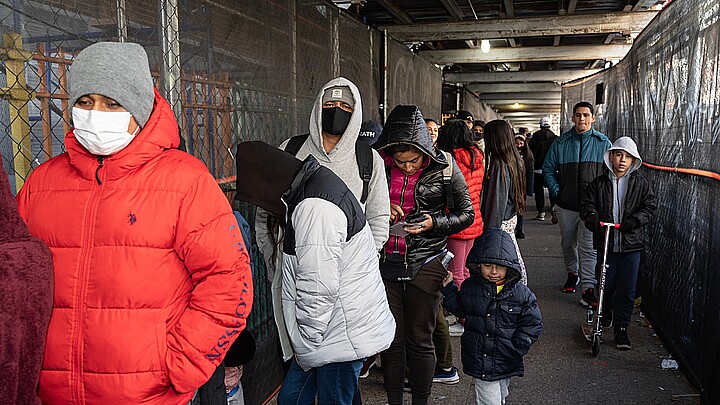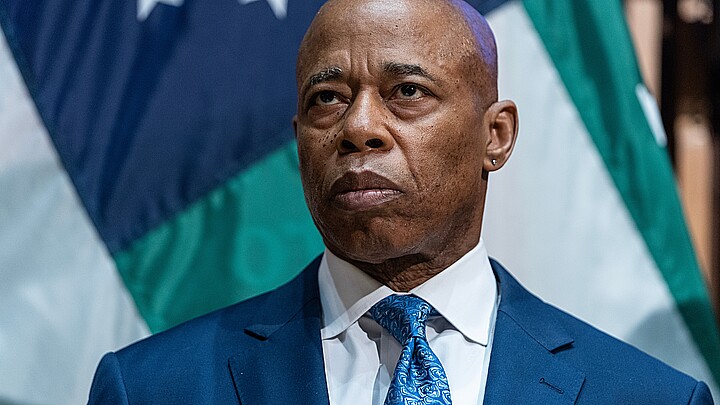Immigration
NYC Mayor Eric Adams proposes housing migrants in private residences
Mayor Adams suggested the possibility of offering financial compensation to homeowners or landlords who are willing to temporarily house migrants in their homes

June 6, 2023 8:27am
Updated: June 6, 2023 8:28am
New York Mayor Eric Adams brought up the possibility of housing migrants in “private residences” as the city continues to struggle to find beds for the tens of thousands of migrants arriving in the city.
During a press conference on Monday, Mayor Adams suggested the possibility of offering financial compensation to homeowners or landlords who are willing to temporarily house migrants in their homes.
"There are residents who are suffering right now because of economic challenges. They have spare rooms. It's cheaper and it's a good investment for us to go to a family and assist them instead of placing people in large congregate settings or in these emergency hotels," the mayor said, adding that such a plan could help give money back to taxpayers.
“And then if you are a family member where you are bilingual, you are going to be able to help the bilingual person that’s coming here,” he added.
The mayor did not specify how the plan would work or how much money New Yorkers would receive for hosting a migrant. However, Adam’s administration would have to work around a rule that bars the city from housing people in homes.
“We should be recycling our own dollars. We should take this crisis and go to opportunities. That is how we can deal with this,” Adam said.
During the press conference, Adams announced the creation of a two-year partnership with the New York Disaster Interfaith Services (NYDIS) to allow 50 places of worship throughout the city to offer overnight shelter for up to 19 single adult men over the next month.
As part of the plan, the city will be paying the places of worship a nightly rate of $125 per asylum seeker—a significantly cheaper rate than the $380 it costs to house and feed a migrant family in one of the hotels being used for shelter.
“Not only will this increase the space we have by nearly 1,000 beds, but it will also connect asylum seekers with local communities,” Adams said.
The city has welcomed more than 72,000 undocumented migrants since last spring. Currently, around 45,000 are being housed by the city in shelters or designated hotels.
"We cannot continue to sustain this with the inflow that we’re receiving," he said. "I don’t want anyone to believe that this is sustainable because it is not."










